Blunders to Avoid When Owning a Home in a Foreign Nation
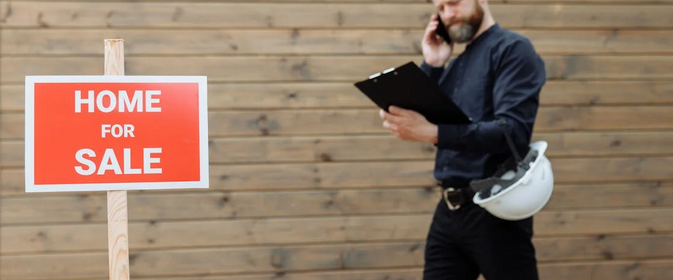
Owning a home abroad can feel like a dream come true. The allure of picturesque landscapes, vibrant cultures, and new adventures beckons many to invest in property overseas. Yet, while the charm of foreign living is enticing, some pitfalls could turn your dream into a nightmare. Navigating the complexities of owning a home in another country requires more than just enthusiasm; it demands careful planning and awareness. Here are some common blunders that can derail your international homeownership journey before you take the plunge.
Failing to Understand Local Property Laws
When purchasing a home in a foreign nation, grasping local property laws is crucial. Each country has its regulations that dictate ownership rights, tax obligations, and leasing rules. Ignoring these intricacies can lead to costly mistakes. For instance, some countries impose restrictions on foreign ownership or require specific permits. You might discover your dream home comes with unexpected limitations that hamper your plans. Navigating this legal landscape often requires professional guidance. Working with a local real estate agent or attorney knowledgeable about the area’s laws can save you from potential pitfalls down the road. Investing time and effort into comprehending these aspects will lay a solid foundation for your new life overseas.
Skipping Due Diligence on the Property
Rushing into a purchase without proper due diligence can lead to major problems. Some foreign properties may have hidden legal disputes, unpaid taxes, or structural issues that could cost thousands in repairs. Conducting a thorough property inspection, verifying land titles, and checking zoning laws ensure that you are buying a legally sound and well-maintained home. Hiring a local expert to investigate the property’s history can prevent purchasing a home with unresolved issues.
Overlooking Currency Exchange and Financial Costs

Foreign real estate transactions often involve currency exchange, which can impact the final purchase price. Buyers who do not consider fluctuating exchange rates may end up paying significantly more than expected. Additionally, some countries require buyers to open local bank accounts or transfer funds through specific legal channels. Understanding the financial aspects, including taxes, transfer fees, and banking regulations, helps avoid unexpected financial burdens.
Ignoring Local Culture and Neighborhood Dynamics
A dream home in a foreign country can quickly become a nightmare if the surrounding environment does not meet your lifestyle expectations. Some homeowners fail to research the local culture, safety levels, or neighborhood atmosphere before purchasing. Factors such as climate, accessibility to healthcare, and transportation also play a significant role in long-term satisfaction. Visiting the location multiple times and speaking with residents helps determine if the area aligns with your needs.
Underestimating Maintenance and Security Challenges

Managing a home abroad requires ongoing maintenance, especially if it will be vacant for long periods. Some owners overlook the need for security measures, property management services, or reliable maintenance personnel. Without proper upkeep, a property can quickly deteriorate, reducing its value. Arranging for local property management or hiring trusted caretakers can help ensure the home remains in good condition.
Owning a home in a foreign nation can be a rewarding experience, but it requires careful planning and awareness of potential pitfalls. Understanding property laws, conducting due diligence, managing financial obligations, and adapting to local culture is key to avoiding costly mistakes. With proper research and expert guidance, foreign homeownership can be a smooth and successful investment.


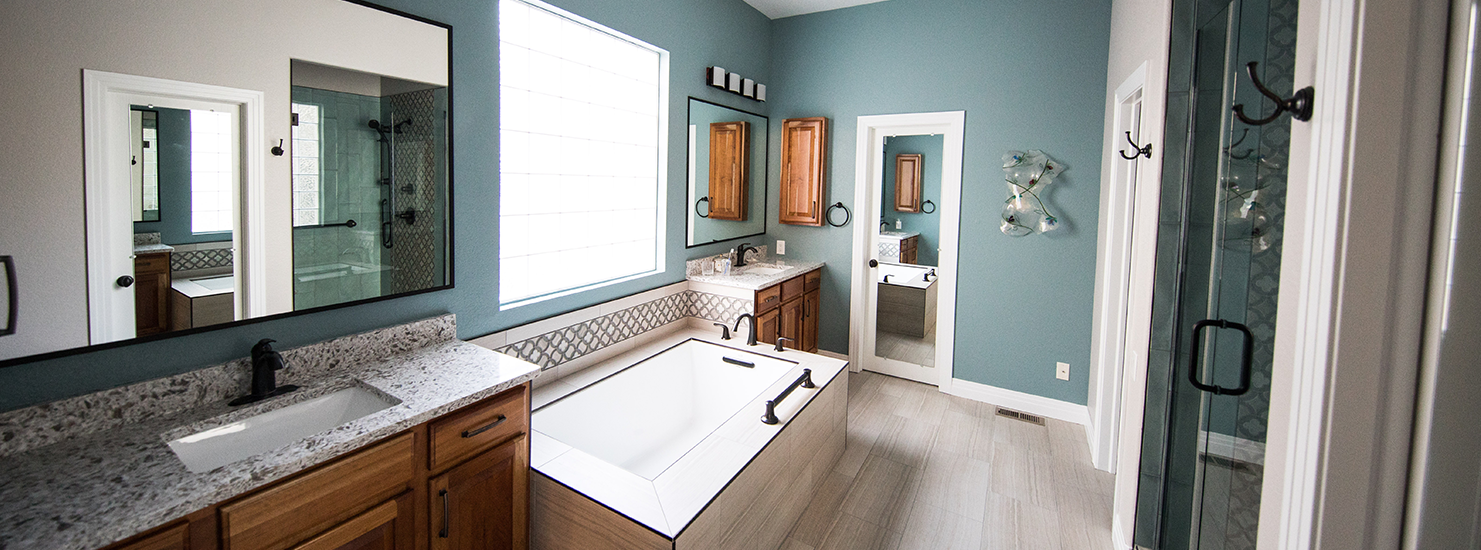





 The second reason why homeowners choose
The second reason why homeowners choose  The fourth reason homeowners prefer wooden benches is because they are environmentally friendly. Unlike other materials, wood is a renewable and sustainable resource. It does not contribute to global warming or pollution and has minimal environmental impact when used responsibly. It is also biodegradable, so you don’t need to worry about it ending up in a landfill. If you are a person who loves nature, then wooden benches are a great choice for you.
The fourth reason homeowners prefer wooden benches is because they are environmentally friendly. Unlike other materials, wood is a renewable and sustainable resource. It does not contribute to global warming or pollution and has minimal environmental impact when used responsibly. It is also biodegradable, so you don’t need to worry about it ending up in a landfill. If you are a person who loves nature, then wooden benches are a great choice for you.

 If the air in your bedroom is too dry, it can make breathing difficult and cause congestion. A humidifier helps add moisture to the air, making breathing easier and reducing congestion. This is especially important in the winter when the air is dry.
If the air in your bedroom is too dry, it can make breathing difficult and cause congestion. A humidifier helps add moisture to the air, making breathing easier and reducing congestion. This is especially important in the winter when the air is dry.
 Butcher block is a very tough and durable material, so you don’t have to worry about it getting scratched or dented. It’s also heat resistant, so you can put hot pans on it without damaging the surface.
Butcher block is a very tough and durable material, so you don’t have to worry about it getting scratched or dented. It’s also heat resistant, so you can put hot pans on it without damaging the surface. If you’re considering selling your home in the future, having butcher block countertops could make it more attractive to potential buyers. Many people do not know that it can actually add value to your home.
If you’re considering selling your home in the future, having butcher block countertops could make it more attractive to potential buyers. Many people do not know that it can actually add value to your home.
 First of all, can you imagine what life would be like in any country that doesn’t have electricity? Let alone Australia, without electricians? They play a critical role in maintaining the infrastructure of the nation.
First of all, can you imagine what life would be like in any country that doesn’t have electricity? Let alone Australia, without electricians? They play a critical role in maintaining the infrastructure of the nation.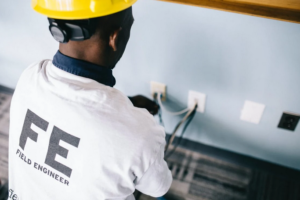 In Australia, electricians are held in high regard. They are seen as a trusted profession. This is because they have the training and expertise to work with electrical systems safely. Additionally, electricians must be licensed in order to work in Australia. This ensures that only qualified individuals are working on electrical systems. With that being said, you can trust the electricians working to fix the electrical problems at your house.
In Australia, electricians are held in high regard. They are seen as a trusted profession. This is because they have the training and expertise to work with electrical systems safely. Additionally, electricians must be licensed in order to work in Australia. This ensures that only qualified individuals are working on electrical systems. With that being said, you can trust the electricians working to fix the electrical problems at your house.
 This is another great way to make space for your new homeowner friends. You’re probably going to be doing quite a bit of cleaning up after they get settled in, so why not go ahead and start now? The best part about getting rid of clutter is that it doesn’t cost anything at all!
This is another great way to make space for your new homeowner friends. You’re probably going to be doing quite a bit of cleaning up after they get settled in, so why not go ahead and start now? The best part about getting rid of clutter is that it doesn’t cost anything at all!



 What do other potential customers say about the pest control firm that you are about to hire? You can answer this question by going through the available reviews. If they are definite, this means that most customers are satisfied with the type of services that they receive. When considering the reputation of a given company, please do not rely on the advertisements since most companies will not post anything negative concerning their services.
What do other potential customers say about the pest control firm that you are about to hire? You can answer this question by going through the available reviews. If they are definite, this means that most customers are satisfied with the type of services that they receive. When considering the reputation of a given company, please do not rely on the advertisements since most companies will not post anything negative concerning their services.
 services have the much-needed expertise for the job. They will assess
services have the much-needed expertise for the job. They will assess 

 Reputation is quite an important factor to consider when looking for the best bathroom remodeling contractors in Portland. A reputed contractor is one that has more physical referrals from the locals. You can as well look at the online reviews to see whether their customers are satisfied with their services. That way, you will be able to choose the best bathroom remodeling contractors in town.
Reputation is quite an important factor to consider when looking for the best bathroom remodeling contractors in Portland. A reputed contractor is one that has more physical referrals from the locals. You can as well look at the online reviews to see whether their customers are satisfied with their services. That way, you will be able to choose the best bathroom remodeling contractors in town.
 you know more about this windows. The inert gas in double glazed windows help keep it more insulated compared to the ones that are single glazed. Look for a
you know more about this windows. The inert gas in double glazed windows help keep it more insulated compared to the ones that are single glazed. Look for a  in your home. It is made using so many materials which makes it very hard to break using any blunt material. The other good feature about it is that it is tightly sealed which also makes it hard to break. There will be minimal chances of intruders getting into your home.
in your home. It is made using so many materials which makes it very hard to break using any blunt material. The other good feature about it is that it is tightly sealed which also makes it hard to break. There will be minimal chances of intruders getting into your home.
 Quality turfs are categorized depending on the functions they perform. Also, there are many local turf suppliers out there that will supply you with quality turfs that will suit your garden or yard. But below are the common types of grass you are asked to know before you rush to the market.
Quality turfs are categorized depending on the functions they perform. Also, there are many local turf suppliers out there that will supply you with quality turfs that will suit your garden or yard. But below are the common types of grass you are asked to know before you rush to the market.

 4. Repairing faulty wiring
4. Repairing faulty wiring
 distributed evenly in all the parts of the home.
distributed evenly in all the parts of the home. friendly to the environment, then gas is the best option. Gas is the best option because it does not release any emissions to the environment.
friendly to the environment, then gas is the best option. Gas is the best option because it does not release any emissions to the environment.
 When signing contracts with your potential property managers, you need to take every step seriously. Bear in your mind that if you make a slight mistake in the whole process, you will land yourself in a serious dispute with the law. Some of the disputes may cost you a lot of money. So the best way of avoiding such disputes is by having a licensed real estate agent who is well conversant with matters related to property management laws.
When signing contracts with your potential property managers, you need to take every step seriously. Bear in your mind that if you make a slight mistake in the whole process, you will land yourself in a serious dispute with the law. Some of the disputes may cost you a lot of money. So the best way of avoiding such disputes is by having a licensed real estate agent who is well conversant with matters related to property management laws. Feedback is also important in maintaining a good customer relationship. Whenever your customers ask any assistance from the management. you need to make sure that you respond promptly. This will build trust among your tenants.
Feedback is also important in maintaining a good customer relationship. Whenever your customers ask any assistance from the management. you need to make sure that you respond promptly. This will build trust among your tenants.
 This is one of the common diseases that is spread by a rat. However, there are various types of plague such as Pneumonic, Septicemic, and Bubonic. Yersinia pestis causes these three types of epidemic. But the other forms of plague may be classified depending on where the disease has reached in a human body. Once, a rat has bitten you, make sure that you seek immediate medical treatment.
This is one of the common diseases that is spread by a rat. However, there are various types of plague such as Pneumonic, Septicemic, and Bubonic. Yersinia pestis causes these three types of epidemic. But the other forms of plague may be classified depending on where the disease has reached in a human body. Once, a rat has bitten you, make sure that you seek immediate medical treatment. Rats carry the Salmonella bacteria that can cause illness to both pets and humans. This infection, therefore, occurs through contaminated area and consumption of contaminated food. This is a dangerous disease more especially to seniors if they are not treated at an earlier stage with the right antibiotics. Also, some of the symptoms of this disease include abdominal cramps, nausea, diarrhea, and vomiting.
Rats carry the Salmonella bacteria that can cause illness to both pets and humans. This infection, therefore, occurs through contaminated area and consumption of contaminated food. This is a dangerous disease more especially to seniors if they are not treated at an earlier stage with the right antibiotics. Also, some of the symptoms of this disease include abdominal cramps, nausea, diarrhea, and vomiting.
 how to go about it when choosing one. One is advised to look at samples of their previous works to tell whether they are right for the job. There are a few things you should consider when choosing a decorative concrete style. They include:
how to go about it when choosing one. One is advised to look at samples of their previous works to tell whether they are right for the job. There are a few things you should consider when choosing a decorative concrete style. They include: making it should be mixed in the right manner. Getting ones that are made with the right concrete mixture guarantees you durability. There is no need for settling for pavers that will get damaged within a short period and cost you more in repairs.
making it should be mixed in the right manner. Getting ones that are made with the right concrete mixture guarantees you durability. There is no need for settling for pavers that will get damaged within a short period and cost you more in repairs.



 It is normal for an air conditioning system to produce some low-frequency noise whenever it is powered. However, when the noise becomes excess, it means you need to repair it. Every sound produced has its implications. For instance, high pitch whistles would mean reduced airflow due to clogging of the vents. A rattling Sound implies that one of its components is broken down and it should be addressed immediately. A humming indicates that the system’s fan or capacitor or fan motor is likely to fail. For damaged blades, it produces a metal clanging noise.
It is normal for an air conditioning system to produce some low-frequency noise whenever it is powered. However, when the noise becomes excess, it means you need to repair it. Every sound produced has its implications. For instance, high pitch whistles would mean reduced airflow due to clogging of the vents. A rattling Sound implies that one of its components is broken down and it should be addressed immediately. A humming indicates that the system’s fan or capacitor or fan motor is likely to fail. For damaged blades, it produces a metal clanging noise.
 The point of cooking by yourself is to be healthier and to be more conscious of what you put in your body. One of the best beverage that you can drink that is healthy for you aside from regular water is juice. A refreshing juice of fruits or vegetables is a good idea for any time in the day when you feel like it.
The point of cooking by yourself is to be healthier and to be more conscious of what you put in your body. One of the best beverage that you can drink that is healthy for you aside from regular water is juice. A refreshing juice of fruits or vegetables is a good idea for any time in the day when you feel like it. For busy people, microwave can be your best friend because it is like taking the highway when it comes to cooking. A shortcut to making cake mugs, mac and cheese, noodle, and many other things. But mainly you will use this to reheat the cold leftovers that you have in the fridge.
For busy people, microwave can be your best friend because it is like taking the highway when it comes to cooking. A shortcut to making cake mugs, mac and cheese, noodle, and many other things. But mainly you will use this to reheat the cold leftovers that you have in the fridge.
 Visit some dealers to ascertain the best among reputable dealers. Select a dealer with at least ten different variations of the fit blinds. This will give you a chance to choose the best among a variety. A dealer that holds blinds in bulk buys them in bulk. Buying in bulk from the factory attract discounts.
Visit some dealers to ascertain the best among reputable dealers. Select a dealer with at least ten different variations of the fit blinds. This will give you a chance to choose the best among a variety. A dealer that holds blinds in bulk buys them in bulk. Buying in bulk from the factory attract discounts. Finally, one will need to budget for the purchase. Budget prevent the Installation of the blind to prevent you from doing other important things. The budget sets the light on the proposed amount of money to be used in the whole process.
Finally, one will need to budget for the purchase. Budget prevent the Installation of the blind to prevent you from doing other important things. The budget sets the light on the proposed amount of money to be used in the whole process.
 The handheld vacuum cleaners are far much smaller in size as compared to the conventional vacuum cleaners; in fact, there are some that are too small and can, therefore, fit in the pocket of many individuals. The small size makes it easier to be moved from one point to another and makes it easy for storage. There are areas which are usually difficult to clean because of space, however, with a handheld vacuum cleaner, you will be able to get to these spots.
The handheld vacuum cleaners are far much smaller in size as compared to the conventional vacuum cleaners; in fact, there are some that are too small and can, therefore, fit in the pocket of many individuals. The small size makes it easier to be moved from one point to another and makes it easy for storage. There are areas which are usually difficult to clean because of space, however, with a handheld vacuum cleaner, you will be able to get to these spots. If you intended to do quick cleanups on your hardwood floor, then the handheld vacuum cleaner is the ideal gadget for you. There are instances when you may need to do the massive cleaning in specific areas of your home. If that is the case, then the handheld vacuum cleaners are the best for you. You can quickly get rid of the pet hair and dirt that are in areas that it is difficult to reach with the giant vacuum cleaners.
If you intended to do quick cleanups on your hardwood floor, then the handheld vacuum cleaner is the ideal gadget for you. There are instances when you may need to do the massive cleaning in specific areas of your home. If that is the case, then the handheld vacuum cleaners are the best for you. You can quickly get rid of the pet hair and dirt that are in areas that it is difficult to reach with the giant vacuum cleaners.
 You and your team from the company you have just set need to have a blueprint of what you intend to have on the web portal. However, the bottom line is to have an interactive web portal, sell and be in business. Therefore, before even the website is created, it is paramount to have all the information required for the website.
You and your team from the company you have just set need to have a blueprint of what you intend to have on the web portal. However, the bottom line is to have an interactive web portal, sell and be in business. Therefore, before even the website is created, it is paramount to have all the information required for the website. The web portals main purpose is to sell properties and therefore customer need to find varieties of the same. Therefore, constant updating need to be done. The team concerned need to bring properties from all categories indicated on the web portal so that everything is both appealing and functional. Make sure that the web portal is well up to date in all aspects.
The web portals main purpose is to sell properties and therefore customer need to find varieties of the same. Therefore, constant updating need to be done. The team concerned need to bring properties from all categories indicated on the web portal so that everything is both appealing and functional. Make sure that the web portal is well up to date in all aspects.

 This is yet another reason that makes colorbond fencing outdo other fencing alternatives. These type of fences come in a variety of designs and styles. With this, you will undoubtedly get something that suits your landscaping needs. More to this, both the front and the back part of colorbond fences look amazing. Thus, you neighbors too will also appreciate good looks.
This is yet another reason that makes colorbond fencing outdo other fencing alternatives. These type of fences come in a variety of designs and styles. With this, you will undoubtedly get something that suits your landscaping needs. More to this, both the front and the back part of colorbond fences look amazing. Thus, you neighbors too will also appreciate good looks.
 As I have mentioned before, there are many unfortunate events that you can prevent from waterproofing your home. It is always better to be safe rather than sorry. Don’t wait until something happens that makes you regret not doing this soon enough. Find the person to do the job in your area and make the appointment. Make sure that it is a trusted contractor from where you live, so if you live in Bedford Park for example, then search for the best waterproofing. A good contractor would have a good review, clear communication line, and be professional with what they do and how they handle the business.
As I have mentioned before, there are many unfortunate events that you can prevent from waterproofing your home. It is always better to be safe rather than sorry. Don’t wait until something happens that makes you regret not doing this soon enough. Find the person to do the job in your area and make the appointment. Make sure that it is a trusted contractor from where you live, so if you live in Bedford Park for example, then search for the best waterproofing. A good contractor would have a good review, clear communication line, and be professional with what they do and how they handle the business. The real reason why you should do our best to avoid any damage to your house is to save money and lower your maintenance cost. Part of having a home is making sure that space is suitable to live in, so you just can’t ignore it when something is not right. By investing some money to take precautions, we are reducing the chance of fixing and repairing in the next five years at least. So that is a lot of cash that you can keep and use for other stuff like education, entertainment, business, investment, and many other things that you wish to use it for.
The real reason why you should do our best to avoid any damage to your house is to save money and lower your maintenance cost. Part of having a home is making sure that space is suitable to live in, so you just can’t ignore it when something is not right. By investing some money to take precautions, we are reducing the chance of fixing and repairing in the next five years at least. So that is a lot of cash that you can keep and use for other stuff like education, entertainment, business, investment, and many other things that you wish to use it for. A guaranty that you are living in a safe space can improve your life quality by eliminating house related
A guaranty that you are living in a safe space can improve your life quality by eliminating house related 
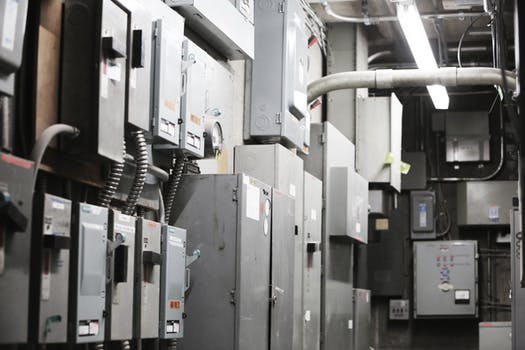 Before you go out there to buy shower panels, you need to understand that there are many types. This way, you will be able to choose the right one that will serve you right. For you to get the right type, you need to have a clear understanding of your shower room. This is because various types are in line with different and therefore you need to know the size of your shower room so that you can get the right one.
Before you go out there to buy shower panels, you need to understand that there are many types. This way, you will be able to choose the right one that will serve you right. For you to get the right type, you need to have a clear understanding of your shower room. This is because various types are in line with different and therefore you need to know the size of your shower room so that you can get the right one. Another interesting thing with shower panels is that they come in a wide variety. With shower panels, you will have an opportunity to select the color that you love, the size that is appropriate for you, the design that you like and also the type that you fancy. If you do not know where to get your accessories, here’s best rated shower panel systems to buy.
Another interesting thing with shower panels is that they come in a wide variety. With shower panels, you will have an opportunity to select the color that you love, the size that is appropriate for you, the design that you like and also the type that you fancy. If you do not know where to get your accessories, here’s best rated shower panel systems to buy.

 Owning a condo comes with some responsibility. In this regard, it comes as some form of a fee paid to the homeowners association to cater for the maintenance of the property. When it comes to an apartment, you also pay some maintenance fee, which is often included in the rent the tenant pays.
Owning a condo comes with some responsibility. In this regard, it comes as some form of a fee paid to the homeowners association to cater for the maintenance of the property. When it comes to an apartment, you also pay some maintenance fee, which is often included in the rent the tenant pays.
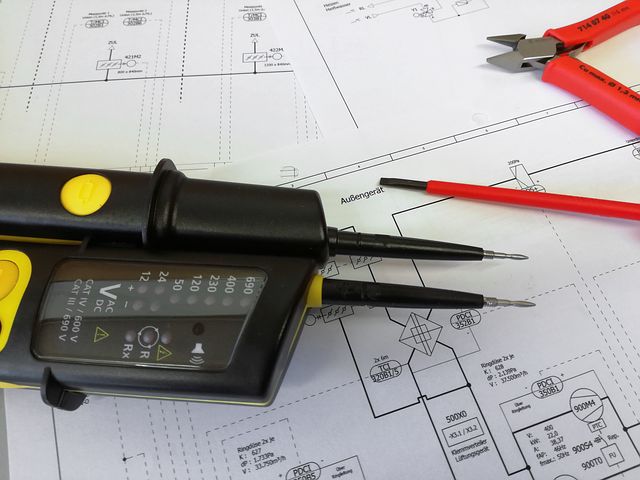 skillful electrician. Some electricians will do shoddy work or leave the work half way. This may be so disappointing especially due to the issues related to poor electrical fittings. With a thorough electrician, you are assured of a good job. Also, they offer advice on what best suits your problem. For instance, they can recommend modern fittings and places to find them.
skillful electrician. Some electricians will do shoddy work or leave the work half way. This may be so disappointing especially due to the issues related to poor electrical fittings. With a thorough electrician, you are assured of a good job. Also, they offer advice on what best suits your problem. For instance, they can recommend modern fittings and places to find them. Watching electricians as they install, troubleshoot and rectify the problems may not guarantee you knowledge on electrical issues. You also need to confirm or look at their training, experience along with the license. Outsourcing well-trained electricians are resourceful when it comes to providing information on electrical issues. They inform their clients on ways of detecting and minimizing the cause of the problem where applicable. More to this, they make you understand why you need them.
Watching electricians as they install, troubleshoot and rectify the problems may not guarantee you knowledge on electrical issues. You also need to confirm or look at their training, experience along with the license. Outsourcing well-trained electricians are resourceful when it comes to providing information on electrical issues. They inform their clients on ways of detecting and minimizing the cause of the problem where applicable. More to this, they make you understand why you need them.



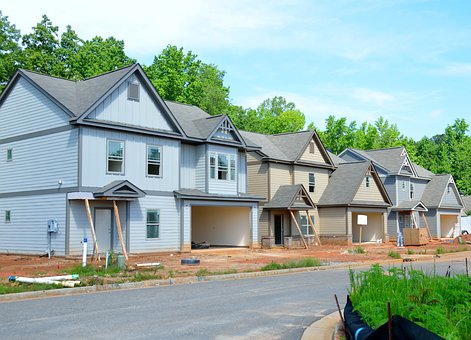 It is not good to just sit and wait for information to come your way. Do some thorough homework by researching on the best deals of property near you. Numerous real estate agents have websites with rich information on various properties you can have. The gather various property and consolidate it into a single detailed website, and with this, you can never be wrong. Search engines can direct you to such websites if you do not have the direct link.
It is not good to just sit and wait for information to come your way. Do some thorough homework by researching on the best deals of property near you. Numerous real estate agents have websites with rich information on various properties you can have. The gather various property and consolidate it into a single detailed website, and with this, you can never be wrong. Search engines can direct you to such websites if you do not have the direct link. Before approaching anyone on the issue, the first thing is to set a budget. Your financial capability dictates the budget as at the time of planning to buy a real estate property. Therefore, there is a significant need to ensure any transaction is one drawn on the budget to avoid either straining financially or compromising on the value of property. Therefore, the cost of anything – including the agent’s fees -matters.
Before approaching anyone on the issue, the first thing is to set a budget. Your financial capability dictates the budget as at the time of planning to buy a real estate property. Therefore, there is a significant need to ensure any transaction is one drawn on the budget to avoid either straining financially or compromising on the value of property. Therefore, the cost of anything – including the agent’s fees -matters.

 st interest rate
st interest rate
 The size of a planer determines what operations it can undertake. A large planer is often precise in shaving thin wood sheets and churning out millimeter thickness. On the other hand, small planers are portable and dependable but are usually prefixed to certain depth levels.
The size of a planer determines what operations it can undertake. A large planer is often precise in shaving thin wood sheets and churning out millimeter thickness. On the other hand, small planers are portable and dependable but are usually prefixed to certain depth levels. The blades rotate at high speed chipping off wood from the planks. The more the knives in a blade, the higher the stroke count. A blade with more top speed has a high stroke count. Nonetheless, speed doses not influence quality. A slower rate is suitable for certain woods while a high speed is appropriate for other woods. It is advisable to choose a benchtop planer with a variable speed so you can adjust speed to suit the type of wood you are working with.
The blades rotate at high speed chipping off wood from the planks. The more the knives in a blade, the higher the stroke count. A blade with more top speed has a high stroke count. Nonetheless, speed doses not influence quality. A slower rate is suitable for certain woods while a high speed is appropriate for other woods. It is advisable to choose a benchtop planer with a variable speed so you can adjust speed to suit the type of wood you are working with.
 you need someone with a wealth of experience. In most instances, the best way to tell whether a technician is experienced or not is by looking at the number of years in the industry. As such, the contractor you choose should send some of their senior technicians to your home.
you need someone with a wealth of experience. In most instances, the best way to tell whether a technician is experienced or not is by looking at the number of years in the industry. As such, the contractor you choose should send some of their senior technicians to your home. References are one of the best ways to finding the right AC contractor. From references, you can tell a lot about the quality of services they offer than just navigating through their site. If a contractor has a couple of strong references, you should not waste time looking elsewhere. In case you do not have friends who can provide you with some references, ask the contractor for a list of references.
References are one of the best ways to finding the right AC contractor. From references, you can tell a lot about the quality of services they offer than just navigating through their site. If a contractor has a couple of strong references, you should not waste time looking elsewhere. In case you do not have friends who can provide you with some references, ask the contractor for a list of references.
 Pest control companies are many, and they all claim to offer the best pest control services. However, they differ significantly in the quality services they offer. Some provide quality services which will eliminate pests quickly and safely. When planning to engage a pest control company in eliminating an infestation in your home, take some time to do a research. The best approach is to take an online tour using various search engines. Check the services they offer and compare it with your needs. Also, have a look at the customer feedback section to ensure that the clients served in the past were contented.
Pest control companies are many, and they all claim to offer the best pest control services. However, they differ significantly in the quality services they offer. Some provide quality services which will eliminate pests quickly and safely. When planning to engage a pest control company in eliminating an infestation in your home, take some time to do a research. The best approach is to take an online tour using various search engines. Check the services they offer and compare it with your needs. Also, have a look at the customer feedback section to ensure that the clients served in the past were contented. Since they handle harmful chemicals, pests control companies operate under different licenses. A company which has complied to such is the best to contract as it reflects the seriousness they give to what they do. Ask the customer care or the sales person to give proof regarding copies of compliance certificates to the relevant requirements.
Since they handle harmful chemicals, pests control companies operate under different licenses. A company which has complied to such is the best to contract as it reflects the seriousness they give to what they do. Ask the customer care or the sales person to give proof regarding copies of compliance certificates to the relevant requirements. ooms to get an idea of what they have to offer. You can check out the materials, design, hardware and several other factors to ascertain whether the customized fittings are fit for your kitchen. You should talk with salespeople at the showrooms so that you can get an idea of the different types of custom kitchen fittings options that are available for sale. You can even do a bit of mix and match by using different varieties of materials, sizes, and hardware to create the perfect customized fittings.
ooms to get an idea of what they have to offer. You can check out the materials, design, hardware and several other factors to ascertain whether the customized fittings are fit for your kitchen. You should talk with salespeople at the showrooms so that you can get an idea of the different types of custom kitchen fittings options that are available for sale. You can even do a bit of mix and match by using different varieties of materials, sizes, and hardware to create the perfect customized fittings. specify the length of your end fittings.
specify the length of your end fittings.



 mless gutters are relatively newer types, which are adjusted and uncoiled as per needed length. Moreover, they can be made as per the measurement of your house. The gutter is powder coated in a broad range of colors. However, the major colors are black, white, and brown. You can also get it colored in different colors. In the recent past, these gutters are becoming very popular.
mless gutters are relatively newer types, which are adjusted and uncoiled as per needed length. Moreover, they can be made as per the measurement of your house. The gutter is powder coated in a broad range of colors. However, the major colors are black, white, and brown. You can also get it colored in different colors. In the recent past, these gutters are becoming very popular. tters are designed to offer homeowners with optimal protection against harsh environmental conditions. Since seamless gutters in continuous aluminium they are installed in a continuous roll, they prevent factors, which contribute to leaky roofs during the strongest typhoons and rainstorms.
tters are designed to offer homeowners with optimal protection against harsh environmental conditions. Since seamless gutters in continuous aluminium they are installed in a continuous roll, they prevent factors, which contribute to leaky roofs during the strongest typhoons and rainstorms.
 Today’s generation isn’t as much into saving and “making do” the same way their grandparents did. That they don’t tend to live in the same spot for thirty years like the generation or two before them. Today’s buyers like variety and move around a lot. They may live in several different homes in their adult lifetime.
Today’s generation isn’t as much into saving and “making do” the same way their grandparents did. That they don’t tend to live in the same spot for thirty years like the generation or two before them. Today’s buyers like variety and move around a lot. They may live in several different homes in their adult lifetime. Since the idea of “home” is so unique from person to person, it helps buyers to think through a variety of scenarios so that they can narrow down what’s important to them. It’s important the buyers think about their lifestyle, budget, desired location, some bedrooms, and how much maintenance they’ll want to do.
Since the idea of “home” is so unique from person to person, it helps buyers to think through a variety of scenarios so that they can narrow down what’s important to them. It’s important the buyers think about their lifestyle, budget, desired location, some bedrooms, and how much maintenance they’ll want to do.
 ions
ions Do not allow yourself to be surprised by a rise in association fee if you did not inquire on entry if the current amount was projected to be raised after a period. This information is important since then you will know if that particular condo unit fits right into a comfortable budget on ownership.
Do not allow yourself to be surprised by a rise in association fee if you did not inquire on entry if the current amount was projected to be raised after a period. This information is important since then you will know if that particular condo unit fits right into a comfortable budget on ownership.
 Other modern ideas that have been implemented are jetted tubs and bathtubs. They have become popular and add a lot of value to remodeling. For investors, know at the back of your mind that the master bathroom is one of the most critiqued units by buyers so target elegance but still take into account budgets and space.
Other modern ideas that have been implemented are jetted tubs and bathtubs. They have become popular and add a lot of value to remodeling. For investors, know at the back of your mind that the master bathroom is one of the most critiqued units by buyers so target elegance but still take into account budgets and space.